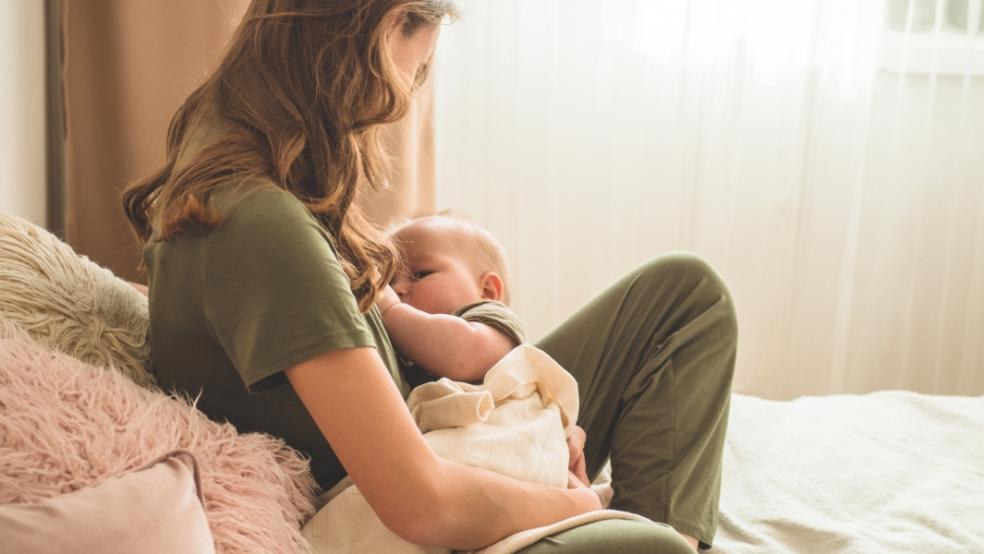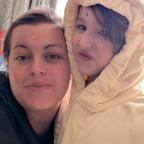
World Breastfeeding Week: Expert gives 6 breastfeeding tips
- Reassured spoke to Deborah Lee from Dr Fox Online Pharmacy in time for World Breastfeeding Week (1st – 7th August) to cover all things breastfeeding
- The expert answers 6 questions, like when and how to stop breastfeeding and what to do when you’re experiencing pain
- Dr Deborah Lee debunks 5 breastfeeding myths from breastfeeding is easy to not being allowed to drink alcohol while breastfeeding
It’s currently World Breastfeeding Week (1st – 7th August) and life insurance broker Reassured has teamed up with Deborah Lee from Dr Fox Online Pharmacy, an expert in the field. Together they have curated a list of six top tips for breastfeeding mums and debunked some of the most common breastfeeding myths!
Six burning questions about breastfeeding answered
1. When should I stop breastfeeding?
Every mum and baby has different needs, but one important thing is to remember a baby will only need breast milk until they are about 6 months old. That is when you can start to slowly introduce solid foods.
Breast milk contains all the nutrients a baby needs, and nursing will help you bond with your baby. There is no hurry to stop doing it until or unless you want to. Many women breastfeed into the baby's second year of life, and some for longer than that.
2. How to stop breastfeeding?
Once you’ve made the decision to stop breastfeeding, no matter the reason, you can start replacing a breastfeed with a milk alternative. You should use formula if the baby is under 12 months. If you use a bottle or a cup will depend on your baby’s preference – if they’re older they may prefer a cup instead of the bottle. If possible, try and reduce breastfeeding slowly so your breasts don’t become engorged.
3. Should you breastfeed before a baby sleeps or when they wake up?
Small babies can only manage a small feed at a time, due to their tiny stomachs. This means they will need to be fed at frequent intervals and have around 8 feeds a day. You can’t force a baby to feed when they’re not hungry, but the baby will let you know when they’re hungry and ready to be fed.
4. What to do when experiencing pain while breastfeeding?
Pain can be caused by a variety of reasons, so it’s important to find out why it’s painful and if unsure speak to your doctor. Some potential reasons are:
1. Engorgement - that means when your breasts are too full of breast milk if your baby hasn’t fed in a while. A warm cloth and expressing a little milk from each side can help. You could even keep the extracted milk in a bottle for later or even freeze it!
2. Blocked milk ducts – You may feel a small tender swelling in the breast. You can feed your baby on that breast and massage the lump gently while feeding. A warm cloth can help too.
3. Cracked nipples – this may be caused if the baby is not positioned correctly when feeding, so speak to your midwife to check your position.
4. Thrush – This is a common problem and will need to be treated. You may see small white patches in your baby’s mouth, and it can cause dryness around the nipple area. In this case, make sure to speak to your doctor to get the correct treatment.
In any case, if you feel like you have an infection or are unsure, do not hesitate to speak to your midwife and your GP.
5. Will I have to stop breastfeeding when sick?
There is no reason to stop breastfeeding if the mother is sick or unwell. Maternal antibodies will help protect the baby from becoming infected.
6. Can I do something to improve milk production?
Constant suckling and nipple stimulation cause the production of breast milk, so let your baby feed frequently until they’re done. Once they had enough they will try to move away or fall asleep.
Make sure to swap breasts for each feed and if you’d like to you can try a breast pump after each feed to pump any residual milk. Most importantly stay hydrated throughout and eat a healthy, balanced diet.
5 breastfeeding myths debunked
We’ve all heard the odd myth surrounding breastfeeding, but are any of these true?
1. Breastfeeding is easy
It takes time, practice, and patience to get used to. Your midwife will be able to help you find the correct positioning for the baby while feeding and answer any other questions you may have.
2. You need to wash your nipples each time before a feed
Nipples are populated with bacteria that will help the baby develop an effective immune system, so you do not need to do this!
3. You shouldn’t take medication while breastfeeding
Medication should always be discussed with your GP and midwife, but in general commonly taken medicine like paracetamol and ibuprofen can be taken by the mother.
4. You can’t drink alcohol while breastfeeding
In moderation drinking alcohol is unlikely to do the baby any harm. It is recommended to not have more than 14 units a week, split over several different occasions.
5. The size of your breast indicate how successful breastfeeding will be
This is not true. Even smaller breasts can produce large amounts of breast milk. Your breast will enlarge with pregnancy, but the size says nothing about your success with breastfeeding.
To find out more about Reassured and tips for parents, please visit: https://www.reassured.co.uk/life-insurance/how-much-does-it-cost-to-raise-a-child-uk/
Related Articles for you
The do’s and don’ts when it comes to breastfeeding & diet

















